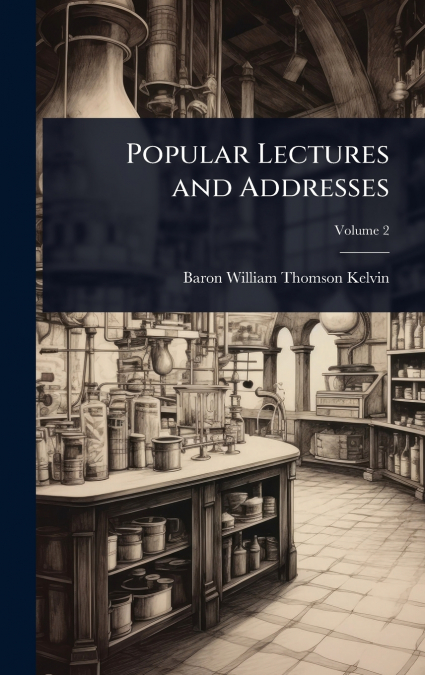
Baron William Thomson Kelvin
'Popular Lectures and Addresses, Volume 2' presents a collection of insightful discourses by Baron William Thomson Kelvin, one of the foremost scientists and engineers of the 19th century. This volume showcases Kelvin’s ability to communicate complex scientific ideas to a broader audience, making it an invaluable resource for anyone interested in the history of science and the development of modern physics. These lectures and addresses cover a range of topics, reflecting Kelvinâs diverse expertise and his profound impact on the scientific community. Kelvin’s clear and engaging style brings these historical scientific discussions to life, offering readers a glimpse into the intellectual landscape of his time. This volume is not only a valuable historical document but also an accessible introduction to the key concepts that shaped our understanding of the physical world. 'Popular Lectures and Addresses' remains relevant for its historical context and the enduring significance of Kelvin’s contributions to science.This work has been selected by scholars as being culturally important, and is part of the knowledge base of civilization as we know it. This work was reproduced from the original artifact, and remains as true to the original work as possible. Therefore, you will see the original copyright references, library stamps (as most of these works have been housed in our most important libraries around the world), and other notations in the work.This work is in the public domain in the United States of America, and possibly other nations. Within the United States, you may freely copy and distribute this work, as no entity (individual or corporate) has a copyright on the body of the work.As a reproduction of a historical artifact, this work may contain missing or blurred pages, poor pictures, errant marks, etc. Scholars believe, and we concur, that this work is important enough to be preserved, reproduced, and made generally available to the public. We appreciate your support of the preservation process, and thank you for being an important part of keeping this knowledge alive and relevant.